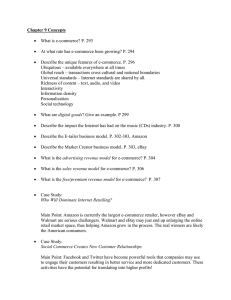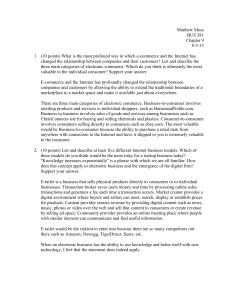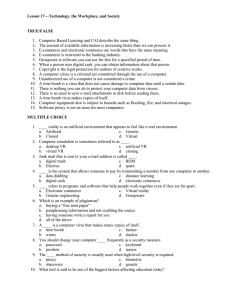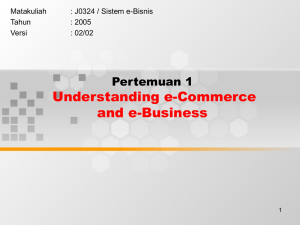Information Systems Overview
advertisement
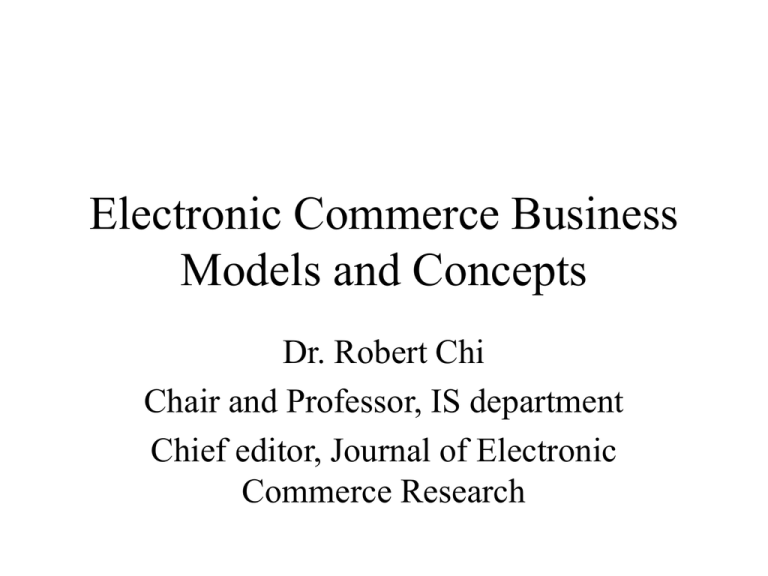
Electronic Commerce Business Models and Concepts Dr. Robert Chi Chair and Professor, IS department Chief editor, Journal of Electronic Commerce Research E-commerce Business Models – Business models? • – A set of planned activities (business processes) designed to result in a profit in a marketplace. Key factors • Value proposition – • Revenue model – • What market space do you intend to serve and what is its size Competitive environment – • How the firm will earn revenue, generate profits. Market opportunity – • How a company’s product or services fulfill the needs of customers. Why should the customer buy from you? What special advantages does your firm bring to the market space Market strategy – How do you plan to promote your products or services to attract your target audience Continued.. • Organizational development – What types of organizational structures within the firm are necessary to carry out the business plan • Management team – What kinds of experience and background are important for the company’s leaders to have Major B2C Business Models (handout 1) • • • • • • • Portal: yahoo.com Etailer: amazon.com Content provider: wsj.com Transaction broker: etrade.com Market creator: ebay.com Service provider: mycfo.com Community provider: about.com Major B2B Business Models (handout 2) • Net Marketplaces – – – – E-distributor: staples.com E-purcurement: Ariba.com Exchanges: gepolymerland.com Industry consortia: • Private Industrial Networks – Single firm networks • Buyer, seller – Industry-wide networks Other Business Models (handout 2) • C2C: ebay.com • P2P kazaa.com • M-commerce: In class exercise • Develop an e-commerce business model which is preferred to be unique and design the first page of its web site • Teamwork, 20 minutes






